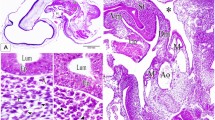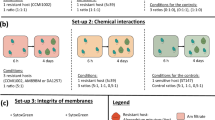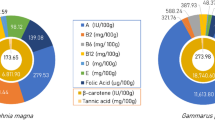Abstract
THE physiology of encystment and excystment of Protozoa and other micro-organisms has received little attention. In the case of the ciliate Colpoda cucullus, it has been earlier shown1 that emergence from the cyst, or excystment, is brought about by some special substances present in the excysting medium, which is usually hay infusion. Part at least of the active material was shown to be ether-soluble. We have therefore subjected hay infusion to fractionation in order to isolate and identify the active excysting substance.
This is a preview of subscription content, access via your institution
Access options
Subscribe to this journal
Receive 51 print issues and online access
$199.00 per year
only $3.90 per issue
Buy this article
- Purchase on Springer Link
- Instant access to full article PDF
Prices may be subject to local taxes which are calculated during checkout
Similar content being viewed by others
References
Thimann, K. V., and Barker, H. A., J. Exp. Zool., 69, 37–57 (1934).
Author information
Authors and Affiliations
Rights and permissions
About this article
Cite this article
THIMANN, K., HAAGEN-SMIT, A. Effects of Salts on Emergence from the Cyst in Protozoa. Nature 140, 645–646 (1937). https://doi.org/10.1038/140645b0
Published:
Issue Date:
DOI: https://doi.org/10.1038/140645b0
Comments
By submitting a comment you agree to abide by our Terms and Community Guidelines. If you find something abusive or that does not comply with our terms or guidelines please flag it as inappropriate.



